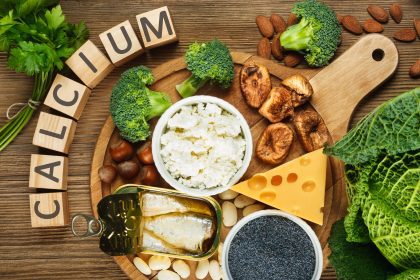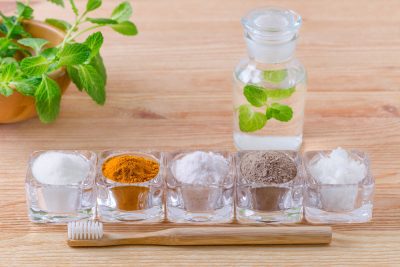You trust your protein powder to fuel your workouts and build muscle, but what if that same supplement is slowly poisoning you? Recent independent testing has revealed a shocking truth about the supplement industry that manufacturers don’t want you to know — many popular protein powders contain dangerous levels of heavy metals, toxins, and contaminants that can seriously damage your health.
This isn’t about minor quality issues or marketing exaggerations. We’re talking about products that could be causing real harm to people who think they’re making healthy choices.
The heavy metals hiding in plain sight
Independent laboratory testing by consumer advocacy groups has found alarming levels of lead, cadmium, arsenic, and mercury in dozens of popular protein powder brands. These heavy metals accumulate in your body over time and can cause serious health problems including kidney damage, neurological issues, and increased cancer risk.
The most shocking part? Many of these contaminated products carry organic certifications and market themselves as premium, health-focused supplements. Price and marketing claims have no correlation with safety — some of the most expensive, well-advertised brands tested among the worst for contamination.
Lead exposure is particularly concerning because there’s no safe level for human consumption. Even small amounts consumed daily through protein powder can build up in your system and cause cognitive problems, high blood pressure, and reproductive issues.
Some products contained heavy metal levels that exceeded California’s strict Proposition 65 limits, which require warning labels for products that could cause cancer or reproductive harm.
How these toxins get into your protein
The contamination often starts with the source ingredients. Plant-based proteins like rice, hemp, and pea protein are particularly susceptible to heavy metal contamination because plants can absorb these toxins from polluted soil and water.
Manufacturing processes can introduce additional contaminants through equipment, processing aids, and inadequate quality control. Many supplement companies don’t own their own manufacturing facilities and rely on third-party producers who may cut corners on testing and purification.
The lack of strict FDA regulation in the supplement industry means companies can essentially police themselves when it comes to testing for contaminants. Unlike pharmaceuticals, supplements don’t require pre-market approval or rigorous safety testing.
Some manufacturers add cheap fillers, artificial ingredients, and processing aids that haven’t been thoroughly tested for safety, creating a cocktail of potentially harmful substances in products marketed as health supplements.
The symptoms you’re probably ignoring
Many gym-goers experiencing fatigue, digestive issues, headaches, or difficulty recovering from workouts assume these problems are related to training intensity or diet. But chronic exposure to heavy metals through contaminated protein powder can cause exactly these symptoms.
Heavy metal toxicity often presents as vague symptoms that people dismiss or attribute to other causes. Chronic fatigue, brain fog, mood changes, and digestive problems can all result from long-term exposure to contaminants in supplements.
Some people develop skin problems, hair loss, or immune system issues without connecting these symptoms to their daily protein shake. The gradual onset of symptoms makes it difficult to identify the source, allowing the damage to continue for months or years.
Why plant-based proteins are riskier
While all protein powders can contain contaminants, plant-based options tend to have higher levels of heavy metals because plants naturally absorb these toxins from the environment. Rice protein is particularly problematic due to rice’s tendency to absorb arsenic from soil and water.
Hemp protein can contain pesticide residues and heavy metals depending on growing conditions and processing methods. Pea protein, while generally cleaner than rice protein, can still contain concerning levels of contaminants if not properly sourced and processed.
This doesn’t mean plant-based proteins are inherently dangerous, but it does mean consumers need to be more selective about brands and look for third-party testing certificates that verify contaminant levels.
The testing loophole that protects nobody
Most supplement companies don’t test for heavy metals or other contaminants because they’re not required to do so. When they do test, it’s often just the raw ingredients rather than the finished product, which can miss contamination introduced during manufacturing.
Third-party testing is voluntary and expensive, so many companies skip it to keep costs down. Even when companies claim to do testing, they often don’t make the results publicly available or test for the full range of potential contaminants.
The supplement industry largely operates on an honor system where companies are supposed to ensure their products are safe, but there’s little oversight or penalty for non-compliance until people get sick.
How to protect yourself from contaminated supplements
Look for protein powders that have been tested by independent laboratories and display certificates of analysis showing contaminant levels. Reputable companies will make this information easily accessible to consumers.
Choose brands that specifically test for heavy metals, pesticides, and other contaminants rather than just basic protein content. NSF International, Informed Choice, and USP are third-party organizations that provide supplement testing and certification.
Consider rotating between different protein sources and brands rather than using the same product exclusively. This reduces your exposure to any single source of contamination and provides nutritional variety.
Whole food alternatives that beat supplements
Real food sources of protein don’t carry the same contamination risks as processed supplements. Eggs, lean meats, fish, dairy, and legumes provide high-quality protein without the potential for heavy metal accumulation.
Greek yogurt, cottage cheese, and milk provide complete proteins with proven safety records. These whole food sources often cost less per gram of protein than supplements and come with additional nutrients that isolated protein powders lack.
If you prefer plant-based options, combinations of nuts, seeds, legumes, and grains can provide complete protein profiles without the processing and potential contamination of protein powders.
The industry response that changes nothing
When confronted with testing results showing contamination, many supplement companies claim their products meet industry standards or that the levels detected are within acceptable ranges. But these responses miss the point — consumers expect supplements to be pure, not just “acceptable” levels of toxic.
Some companies have reformulated products or changed suppliers after negative test results, but without mandatory testing and disclosure, consumers have no way to know which products are truly safe.
The supplement industry’s track record of self-regulation has proven inadequate to protect consumers from contaminated products. Until regulations change, the burden falls on individuals to research and choose carefully.
Making informed decisions about protein supplements
If you choose to use protein powder, treat it like any other processed food — read labels carefully, research manufacturers, and look for transparency in testing and sourcing. Don’t assume that higher prices or marketing claims guarantee safety.
Consider whether you actually need protein supplements or if you can meet your protein needs through whole foods. Many people use protein powder out of convenience rather than necessity, potentially exposing themselves to risks for minimal benefit.
The most important thing is being aware that the supplement industry isn’t as tightly regulated as most consumers believe, and taking responsibility for researching products before putting them in your body.














